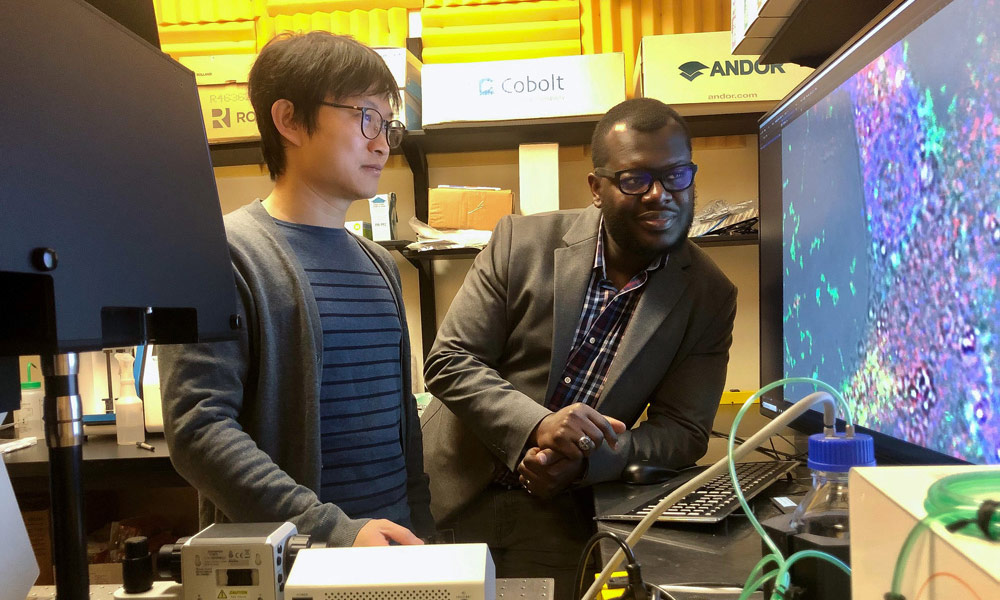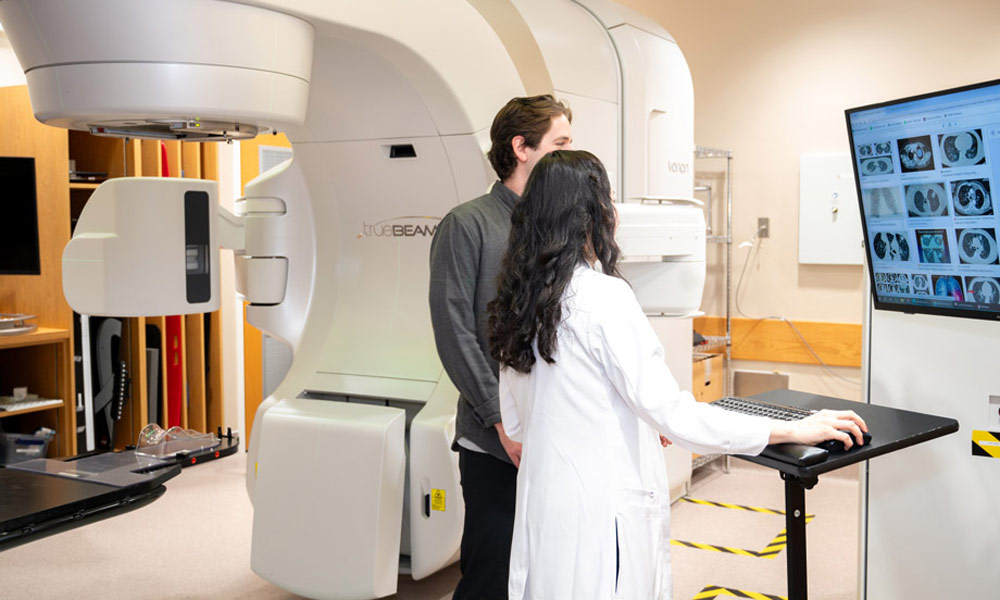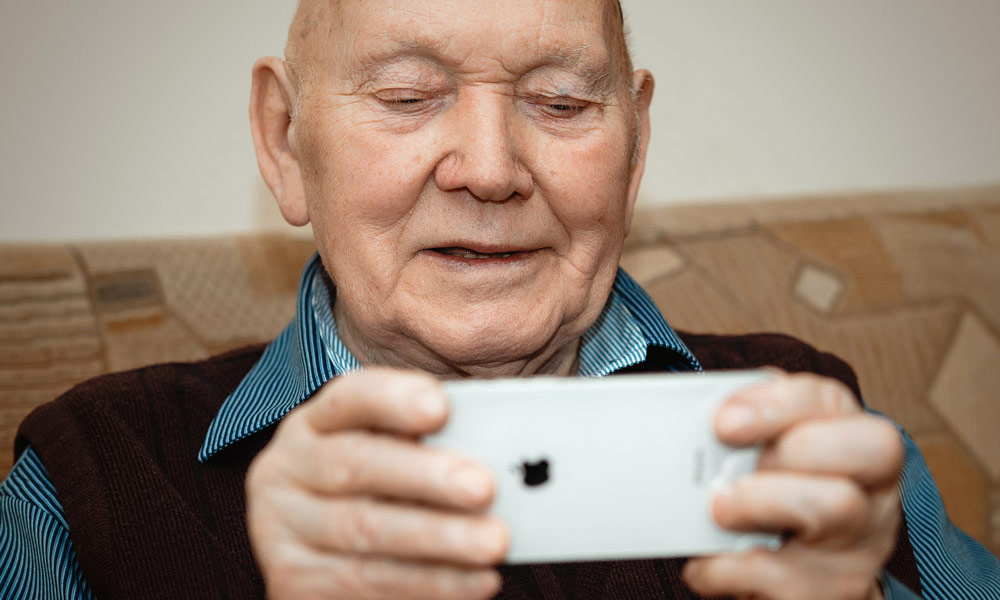Three new, two renewed Eminence clusters tackling complex societal problems
The newest UBC Okanagan Research Excellence Clusters are utilizing their interdisciplinary expertise to tackle some of society’s most complex and urgent challenges.
Funded through the Office of the Vice-Principal, Research and Innovation’s (VPRI) Eminence Program, Research Excellence Clusters are interdisciplinary teams of researchers that focus on addressing complicated societal problems beyond traditional disciplinary boundaries. The Eminence Program funds each cluster for three years.
“I am proud of the interdisciplinary research taking place on our campus that is represented in this year’s research clusters,” says Dr. Phil Barker, Vice-Principal, Research and Innovation. “These teams are taking on major challenges in our society, from data safety and AI, to understanding immune cells, optimization of human radiotherapy, aging well and in place, and our homelessness crisis. We look forward to realizing the impact of these initiatives in research outcomes and in our community.”
After a competitive process, VPRI has funded three new clusters and renewed two existing clusters to continue their work.
Digital Transparency

This image was generated by Midjourney, an AI visualization program, using a simple prompt: “How will artificial intelligence positively and negatively affect the world.”
Co-led by Dr. Pourang Irani and Dr. Wendy Wong, the Digital Transparency Research Excellence Cluster will create digital literacy tools for better data safety.
Given the challenges around accountability with AI applications and their heavy reliance on data generated by, and about, humans, the cluster will focus on equipping the broader community with the essential tools needed to make informed choices and leverage the numerous advantages of AI. The cluster is a collaboration between humanists and social scientists dedicated to understanding the effects of AI on society and humanity and technologists specializing in visual computing and engineering.
Immunobiology

Dr. Isaac Li and Dr. Emmanuel Osei will lead the Immunobiology Research Excellence Cluster and collaboratively research immune cell interactions for better cancer treatments.
Immunotherapy is a highly promising approach to cancer treatment that boosts a person’s immune system to help find and attack cancer cells. However, immunotherapy is currently inconsistent in treating cancer and inflammatory diseases, and scientists don’t have a detailed understanding of how immune cells interact at a cellular level, or with other cells. With this interdisciplinary team of experts, the cluster aims to develop next-generation techniques to monitor immune cells in real time with hopes of revolutionizing treatment of cancer and other diseases.
Personalized Cancer Radiotherapy

Led by Dr. Christina Haston, the Personalized Cancer Radiotherapy Research Excellence Cluster will be developing a blood test for individualized radiotherapy risk.
Currently, physicians constrain radiation doses to avoid severe damage, but for 95 per cent of patients, increased radiation doses may possibly increase the effectiveness of the treatment. The cluster’s aim is to develop a pre-treatment blood test for radiotherapy that, combined with information about individual traits (age, gender) and radiation dose, could provide more specific information on patients’ genetic risk of radiotherapy side effects.
In addition to these new clusters, both the Aging in Place and Homelessness research clusters have been renewed for another three years of funding to enable them to continue their outstanding work.
Aging in Place

For the past three years, Dr. Jennifer Jakobi and Dr. Kathy Rush have been leading this interdisciplinary team to help optimize active and healthy aging at home. The cluster’s goal is to help older adults “age in place” or remain in their homes, safely and comfortably, by developing evidence-based, in-home self-management supports and assistive technologies to maintain physical activity, functional independence and social connections.
Homelessness

The Homelessness Research Excellence Cluster, led by Dr. John Graham, is identifying technology and service-delivery solutions to reduce homelessness in vulnerable populations in the Okanagan. The team works in close collaboration with community-based agencies and Indigenous communities to help make homelessness strategies more responsive and efficient in addressing the diverse needs of vulnerable populations, including those who have experienced a traumatic brain injury.